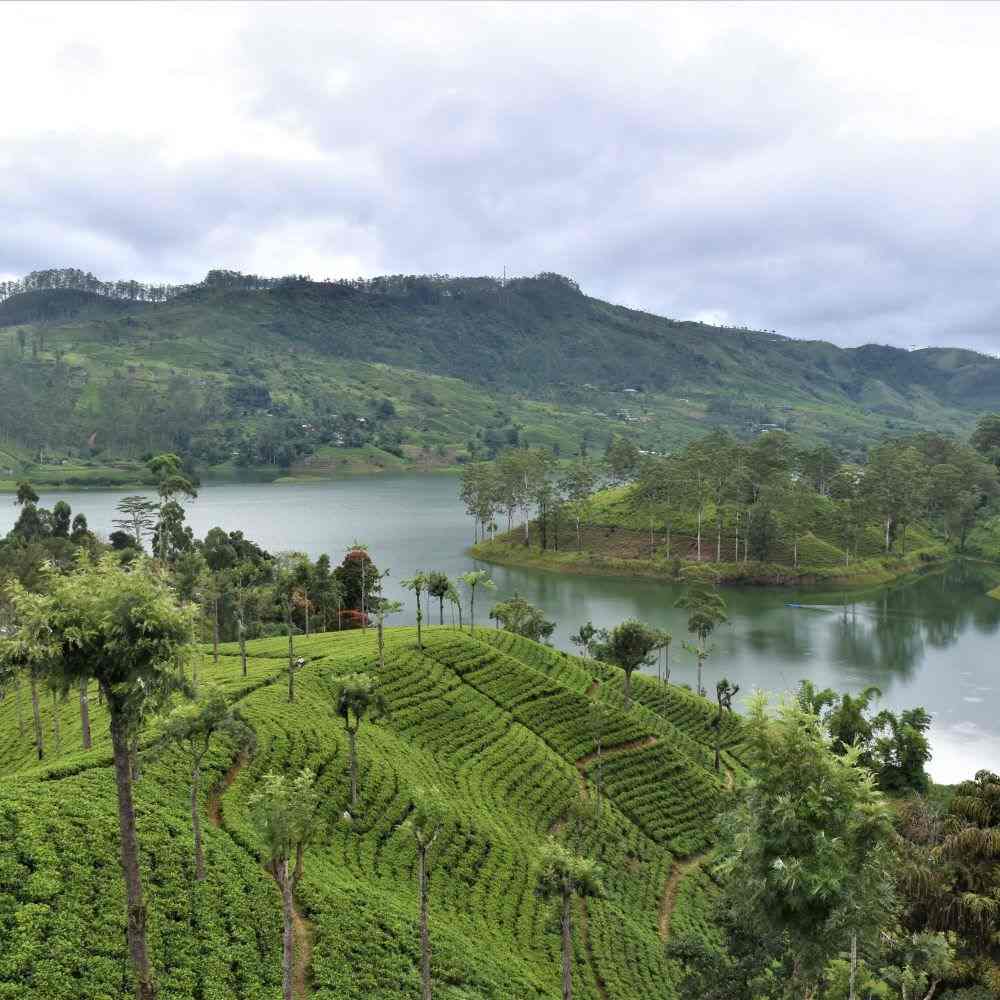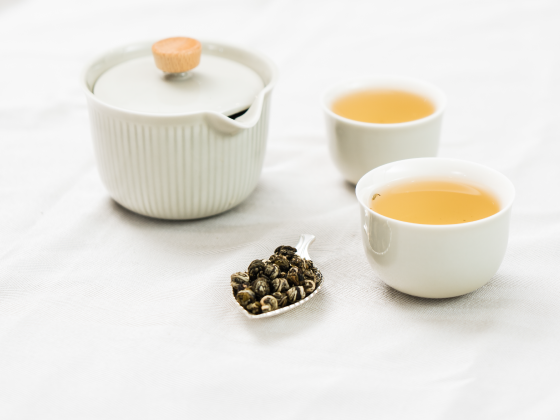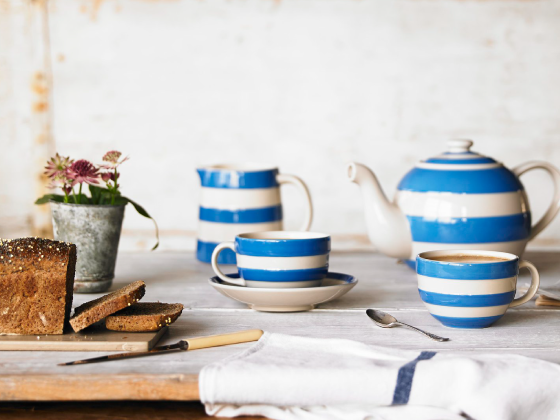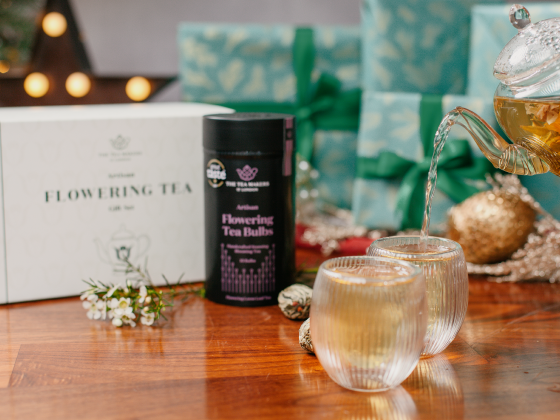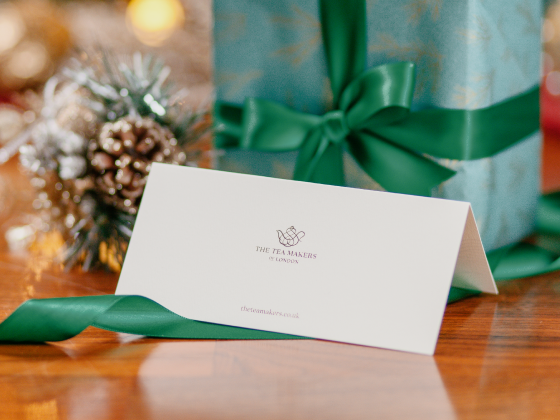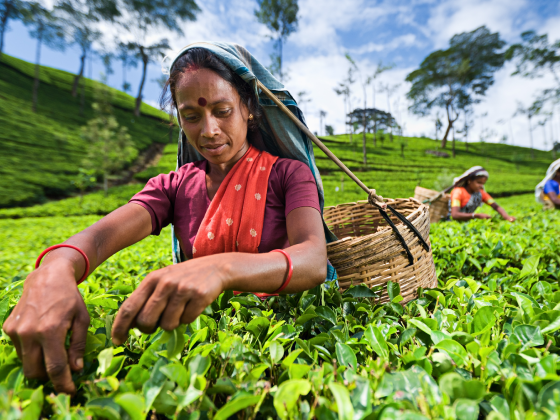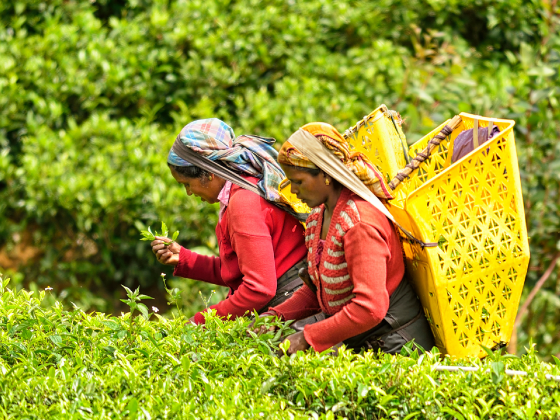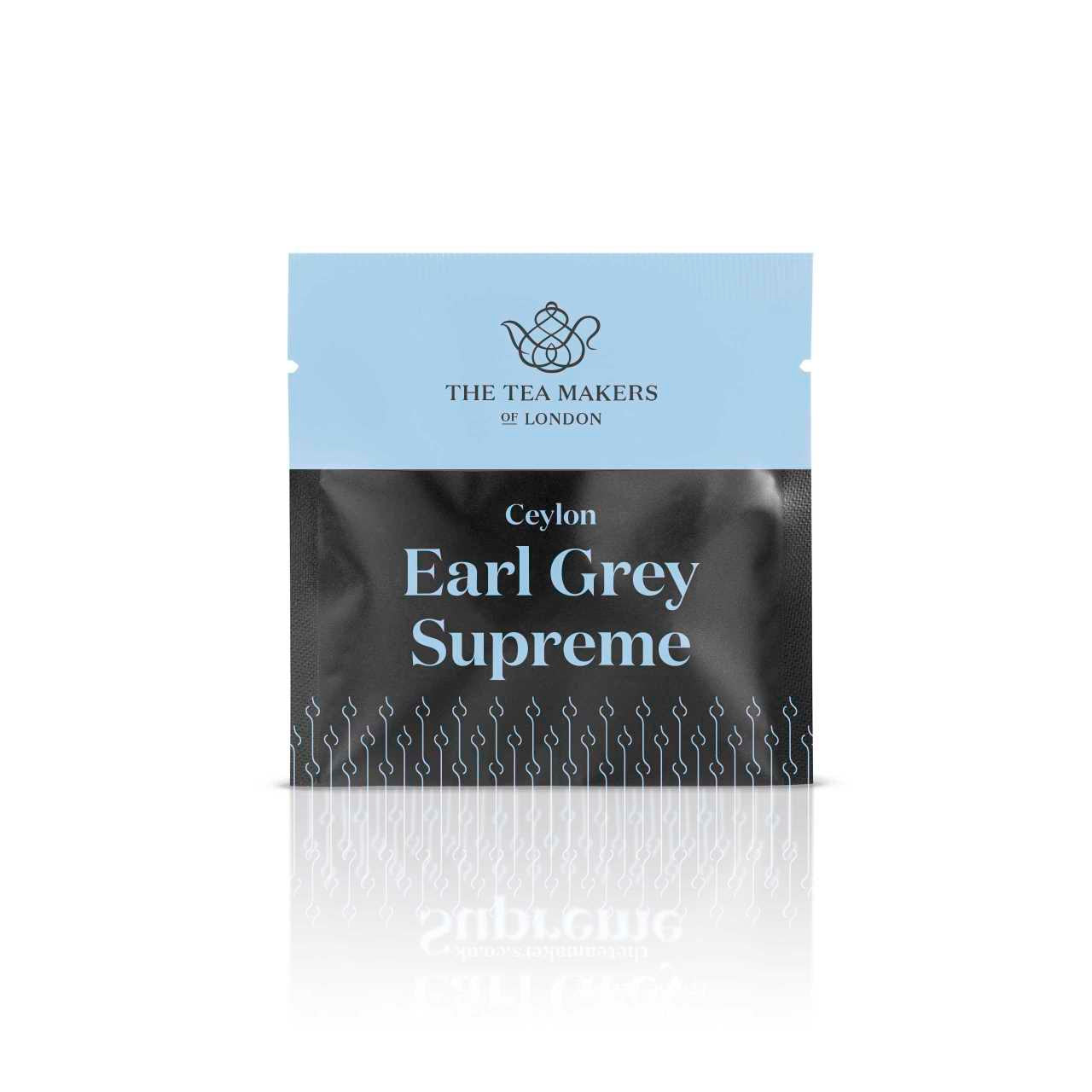

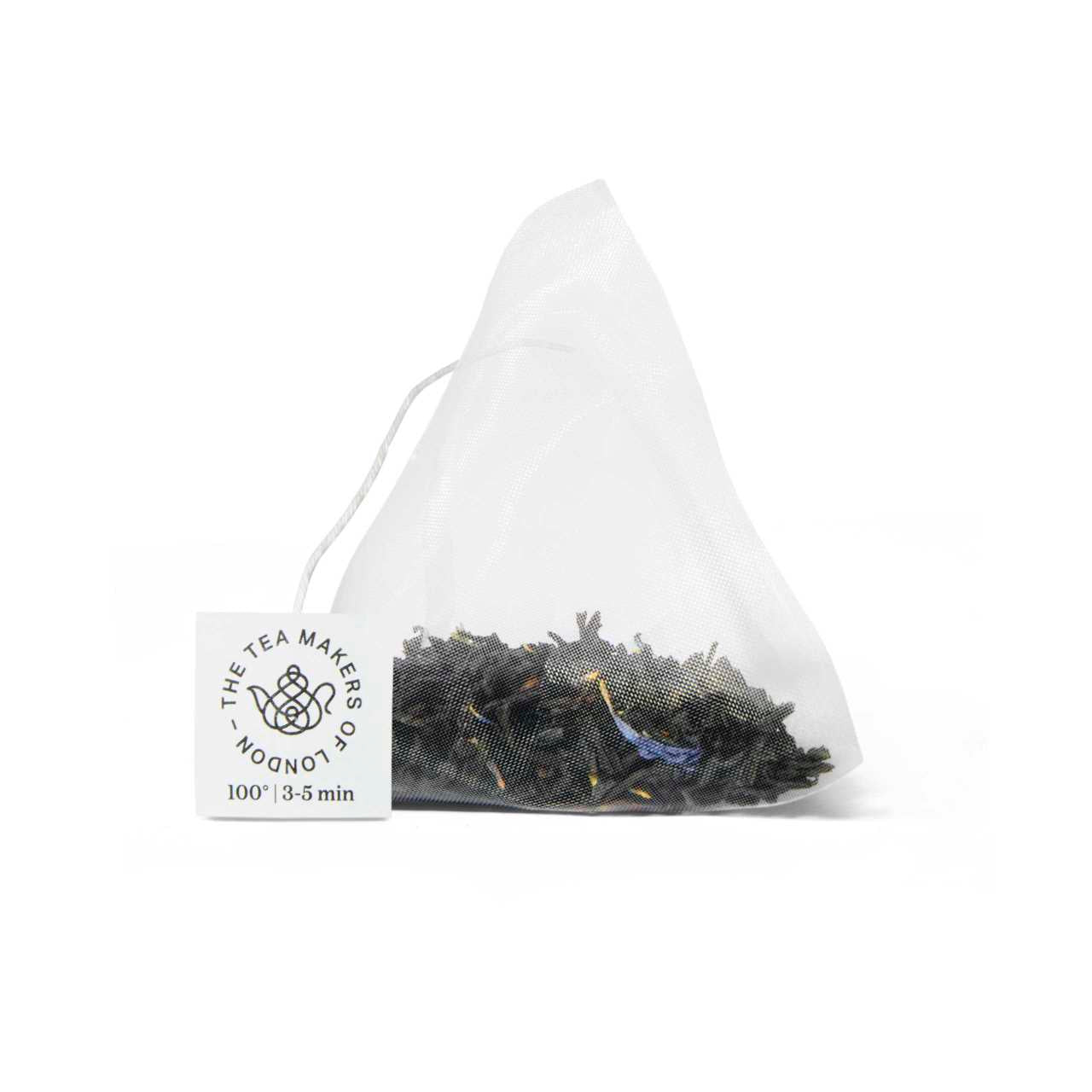

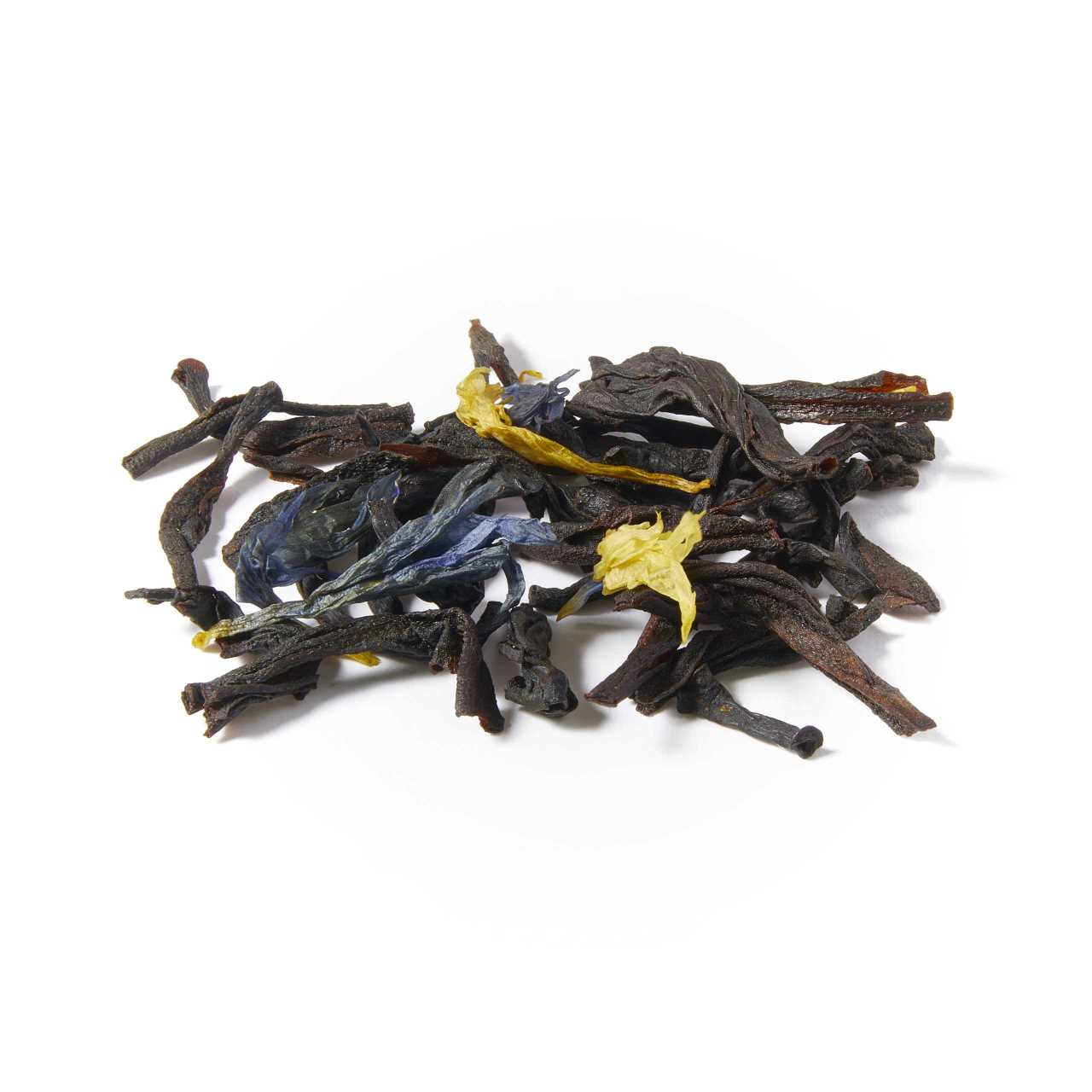

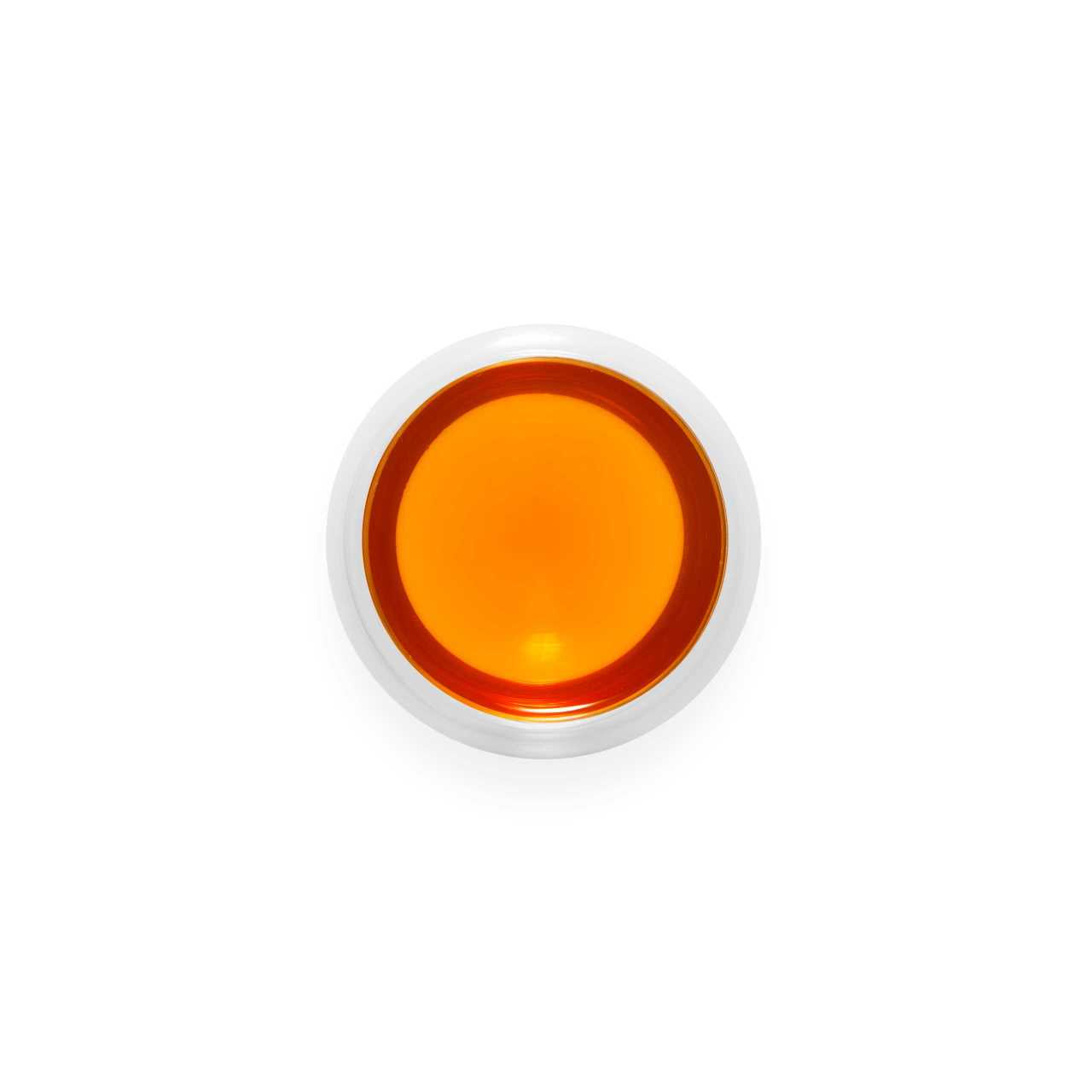

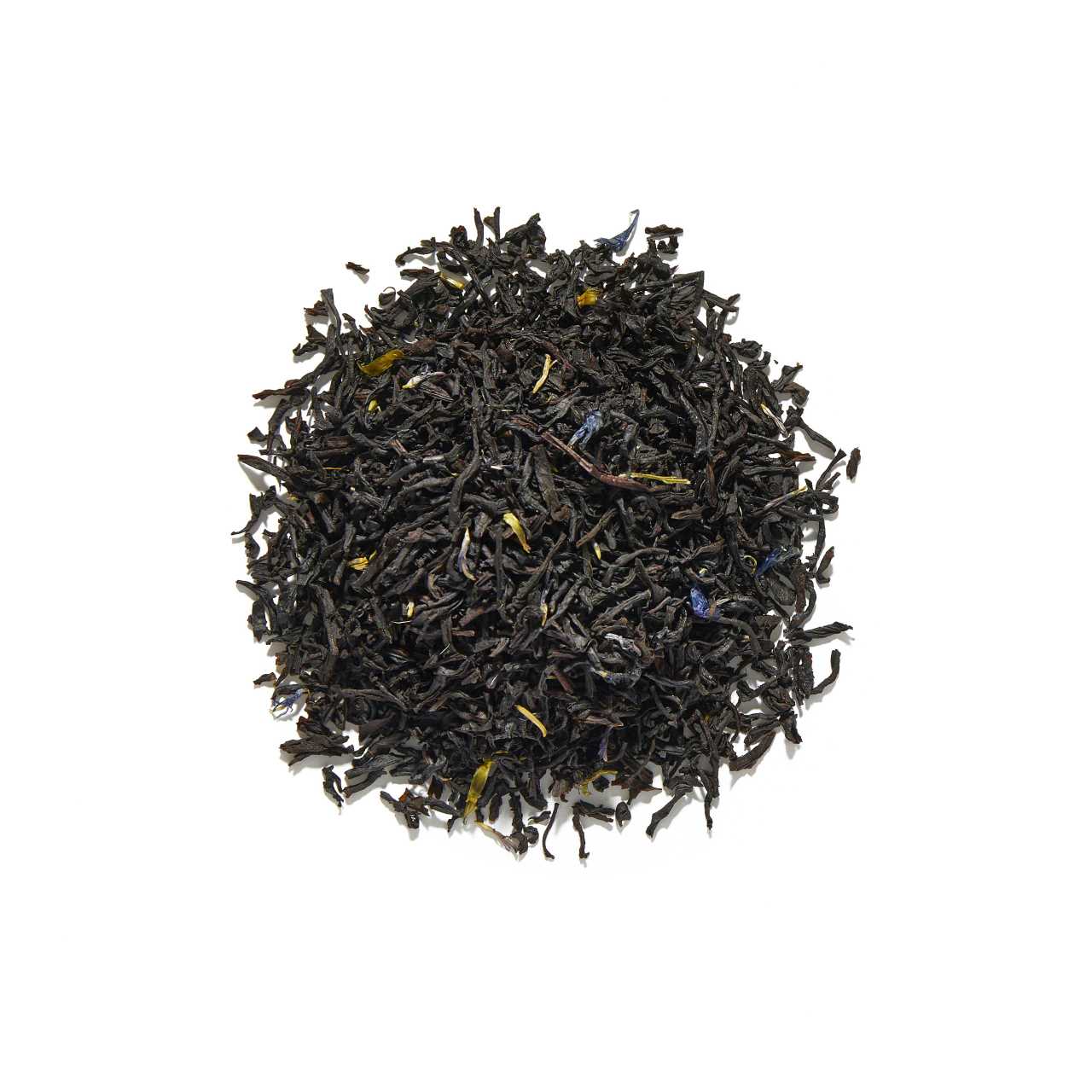

No. 7
Supreme Earl Grey Envelopes
Our award-winning Earl Grey Supreme combines premium Ceylon leaves with delightfully fragrant bergamot oil in this exquisite best-selling tea.
Choose options
Our award-winning Earl Grey Supreme combines premium Ceylon leaves with delightfully fragrant bergamot oil in this exquisite best-selling tea.
Our award-winning Earl Grey Supreme combines premium Ceylon leaves with delightfully fragrant bergamot oil in this exquisite best-selling tea.
Our Great Taste award-winning Supreme Earl Grey is a loose-leaf blend of the finest Ceylon black teas. Subtly scented with bergamot essential oil, it's mixed with vibrant blue cornflowers for an aromatic infusion with distinct citrus fruit notes. Our loose leaf Earl Grey tea is also available as a loose-leaf tea.
Rich and well-rounded in flavour yet beautifully delicate, our Supreme Earl Grey has evenly graded, rolled wiry leaves and deep golden-amber colour. It's bright, citrusy and floral qualities invite you to slow down and take a breath, making it the perfect mid-morning or afternoon brew that can be enjoyed with or without milk.
Supreme Earl Grey is harvested all year round from select tea estates in Sri Lanka's revered Nuwara Eliya and Dimbula districts, which are synonymous with the Ceylon tea industry. Here, great care and attention are paid to production techniques, which see the leaves withered, rolled and oxidised in the time-honoured orthodox method.
The history of Earl Grey tea
From its introduction onto the British market in the mid-19th century, Earl Grey has been linked with afternoon teas and polite society. Much loved for its heady aromatics of citrus-tinged with spice, it hasn't been out of style since – as likely these days to be found in your kitchen caddy as on a hotel tea room menu.
Earl Grey was the first scented tea ever brewed. Forever associated with Charles Grey, the second Earl Grey and British prime minister from 1830 to 1834, its exact origins were never recorded but date back to the early 1800s and the start of the global tea industry. One of the most commonly quoted stories about the invention of Earl Grey tea has it that Charles Grey was gifted a black tea infused with bergamot oil by a Chinese mandarin as thanks to one of Grey's men saving his son's life.
Another goes that the tea was accidentally 'discovered' when a shipment of bergamot oranges and black tea were shipped together to the earl's home, Howick Hall in Northumberland. More likely is that essential citrus oils were used to improve the flavour of tea made with strong-tasting water. Because Charles Grey never trademarked the name, the emerging big tea companies of the Victorian era were left to claim Earl Grey tea as their own, and the truth will probably remain a mystery.
What is without a doubt is how popular Earl Grey tea has become the world over. Today, Earl Grey is usually made by tea companies from Ceylon or Assam teas, or a blend of both, combined with bergamot orange. However, various regions and companies have created their own versions of the blend down the years – the most famous spin-off being Lady Grey, or Mary Grey in our case.
Science has recently given Earl Grey tea even more of a boost. To add to a raft of discoveries about black teas' antioxidant and disease-fighting properties, studies have shown that bergamot may aid digestion, inhibit gut inflammation and help fight the bacteria associated with stomach ulcers and other gastrointestinal disorders.
Alternatives to this iconic black tea blend
For a more delicate take on this much-loved blend, try our Mary Grey, full of fruity, citrus flavour and cheerful marigold petals. For another flavoured black tea, why not try our Assam Chocolate Spice Chai? A healthy and vegan alternative to hot chocolate.
The tea offers a fresh and citrusy aroma and amber infusion. Characterfully rich and strong bergamot flavour with crisp and tangy mouthfeel.
Pure Sri Lankan Black Tea, Natural Identical Bergamot Flavour and Blue Cornflowers
